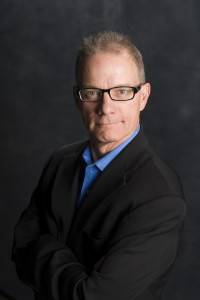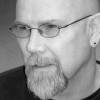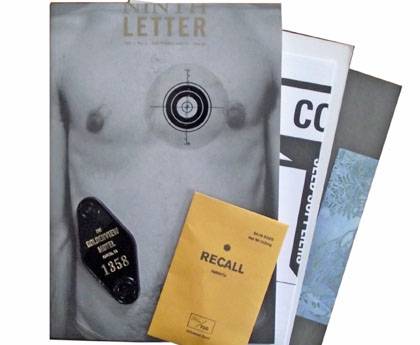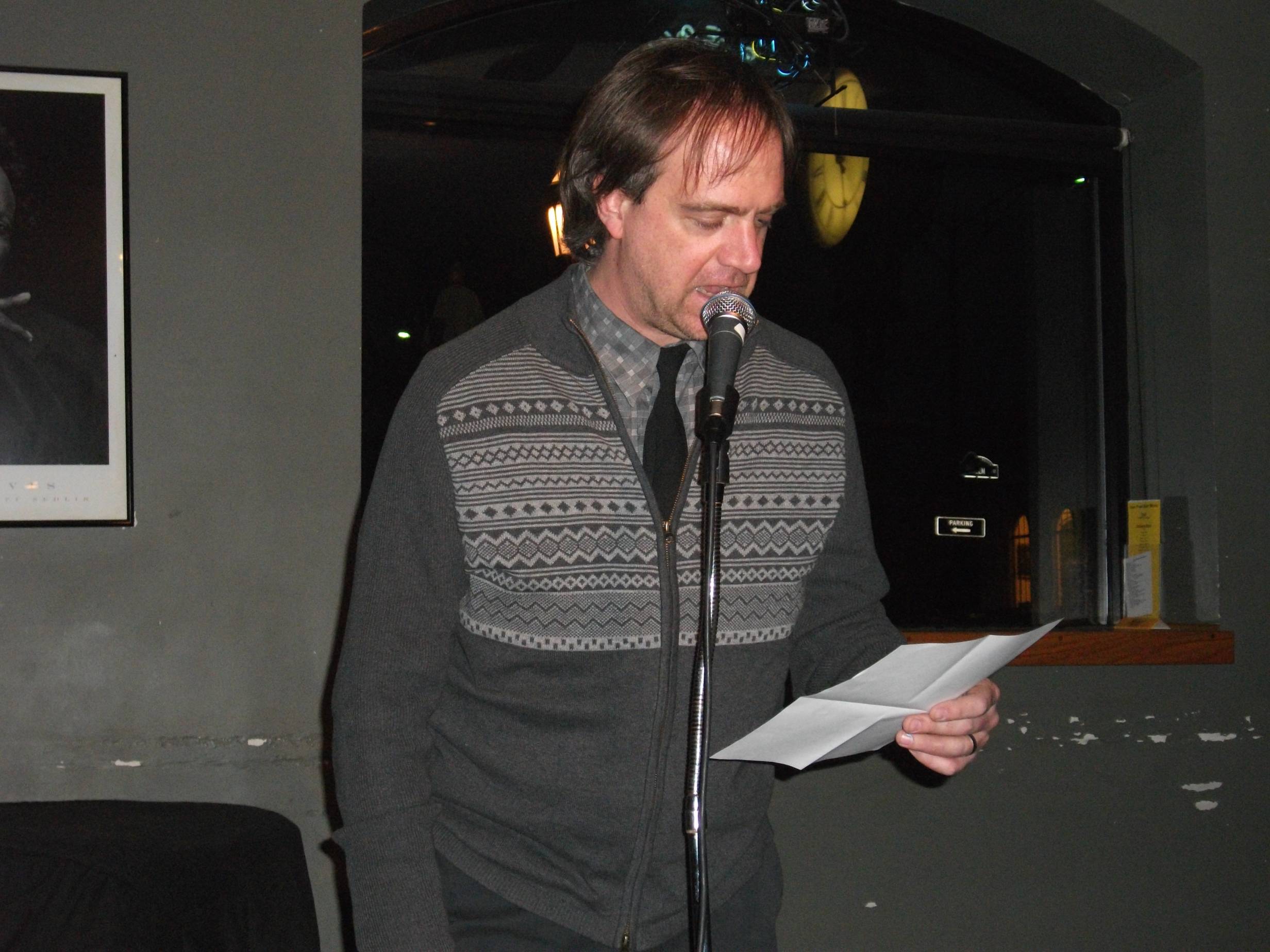2011 Early Spring Literary Festival | March 13-16, 2011 | Various Locations | Free
Last year, when the university’s Creative Writing Department announced its first Early Spring Literary Festival, it was a departure from its previous, more traditional visiting author series. In previous years, the event was essentially secluded to the Illini Union Bookstore and attended almost  exclusively by people directly affiliated with the English Department. The three day schedule, while being rather modest in scale, featured a fairly robust assortment of readings and panels, and while it didn’t take C-U by storm, it showed the department’s willingness to attract those who might not otherwise be involved with contemporary literature.
exclusively by people directly affiliated with the English Department. The three day schedule, while being rather modest in scale, featured a fairly robust assortment of readings and panels, and while it didn’t take C-U by storm, it showed the department’s willingness to attract those who might not otherwise be involved with contemporary literature.
This year, festival organizers Jodee Stanley and Steve Davenport chatted with me about how they went about making ESLF more appealing and accessible to the community (Hint: their strategy involves getting readers like State Poet Laureate Kevin Stein and local National Book Award nominee Jean Thompson to show up while — perhaps in response to Annie’s comment — expanding some of its hours of operation).
Read on to see why you should check it out/what kind of mother Steve Davenport is.
Illinois’ Poet Laureate, Kevin Stein
This is the second year that you’ve held the ESLF. What’s new and exciting this time around?
 Steve Davenport: When new people participate, things are always new and exciting. Our interaction with the good folks at the Rare Book Room moves the festival around the quad a bit. The Sandburg event Monday evening (March 14) gets us into Smith Hall. It’s also exciting that we’ll kick off festival activities with a couple of local authors Amy Hassinger and William Gillespie, in downtown Champaign at Figure One.
Steve Davenport: When new people participate, things are always new and exciting. Our interaction with the good folks at the Rare Book Room moves the festival around the quad a bit. The Sandburg event Monday evening (March 14) gets us into Smith Hall. It’s also exciting that we’ll kick off festival activities with a couple of local authors Amy Hassinger and William Gillespie, in downtown Champaign at Figure One.
 Jodee Stanley: Also, this year we’ll be featuring a reading by the winners of this year’s graduate and undergraduate creative writing awards, and it’s exciting to have a celebration of our students’ work along with all the great writers we’re bringing in.
Jodee Stanley: Also, this year we’ll be featuring a reading by the winners of this year’s graduate and undergraduate creative writing awards, and it’s exciting to have a celebration of our students’ work along with all the great writers we’re bringing in.
It seems like the fest is pretty ecumenical this year. I really like the idea of getting students and community members involved, and it seems like pooling resources with the Rare Book Room and the Art and Design folks will add an interesting wrinkle to the whole shin dig. What would you say prompted these particular collaborations?
Jodee: It’s always been the hope and/or plan that the festival would grow to reach out further across campus and the larger C-U community. We know that there’s an audience beyond the creative writing program and English department for great writing as well as other forms of creative expression. Part of the long-term mission for the festival is to reach out to that audience, to let them know that the university has these events to offer, and to bridge that divide. We also wanted to include writers and artists not directly affiliated with our program because it’s really important to recognize and support the larger creative community, and we have a terrifically strong one here in C-U.
Steve: Back before the first ESLF we talked about taking events to places like the local libraries. As much as I love the good folks at Illini Union Bookstore, which feels like our home court, I’m hoping down the road to get events into places like Jane Addams Book Shop.
 It seems like you’re starting to find a way to tap into the local writing scene, not just with the Figure One reading, but also with Ninth Letter‘s publication of William Gillespie’s “Newspoem.” [I’ll link up to Laura’s interview] When you were booking writers and panelists, was it harder to nab locals, or folks like Kevin Stein and Jean Thompson?
It seems like you’re starting to find a way to tap into the local writing scene, not just with the Figure One reading, but also with Ninth Letter‘s publication of William Gillespie’s “Newspoem.” [I’ll link up to Laura’s interview] When you were booking writers and panelists, was it harder to nab locals, or folks like Kevin Stein and Jean Thompson?
Steve: Jodee might know more than I do about ease or difficulty, but folks like Jean Thompson and Larry Lieberman, as emeritus professors who still live here, are as local as, say, Amy Hassinger, who lives just a few blocks from campus, and William Gillespie, who works at the university. The real difficulty in bringing folks to town resides at Deb Stauffer’s desk since she’s the one who figures out connecting flights that begin and end in small airports.
Jodee: We didn’t run into any real problems getting great authors to participate in the festival, no matter if they live here in C-U, elsewhere in Illinois, or even further afield–I’m happy to say that everyone we invited seems genuinely excited to come! The only difficulty, as Steve points out, is sorting out logistics of travel, making sure we keep track of whose coming when and that they all have places to stay, transportation, etc. Fortunately Deb in the English Dept. office is the best when it comes to coordinating that stuff.
This year’s panels deal with topics that range from music writing to trauma theory. How do you decide upon these topics/who discusses them?
Steve: For the panels, we begin with ideas generated in discussion among the members of the planning committee: this year, Janice Harrington, Audrey Petty, Jodee, and me.
Jodee: Regarding the panel organization, we don’t have an overly-structured procedure for deciding what subjects to cover–the committee comes up with a few ideas, and grad students and faculty in creative writing are also encouraged to propose topics. Then I think it’s just a matter of making sure we have a range of interesting writing- and book-related discussions that will appeal to a variety of people.

William Gillespie reading at last year’s Stories & Beer
Is it fair to ask which event you’re the most excited about, or will you just give me the same answer my mom gives me when I ask her which child is her favorite?
Steve: Hmmm. I’m not sure what your mother says, but here’s what I say when I’m asked that question: “You’re my favorite daughter. Don’t tell your sisters I said that. Now go get me a cup of coffee.”
Jodee: Well, I’m excited about them all for different reasons, obviously, but I’m really really looking forward to the Adam Levin and T.A. Noonan reading, because they’re two Ninth Letter authors whose first books have recently come out, and one of the best parts about editing Ninth Letter is supporting young writers at the beginning of their careers. I’m really proud of these two writers and am looking forward to showing them off, in a way. That also sounds kind of mom-like, doesn’t it?
And of course I’m really jazzed about the Figure One reading on Sunday with William Gillespie and Amy Hassinger, because Figure One is such a cool new space for us to try out. Plus, I’ve known Amy for a long time but have never heard her read, so I’m looking forward to that. That event, followed up by the superb Stories & Beer lineup, will make an excellent start to the week.
—————
Full Disclosure: Aaron Burch and I are co-organizers of Stories & Beer, a reading event that is affiliated with, but not directly a part of the ESLF. There are also several current and former SP confederates participating in various aspects of the fest.
—————
Here’s a full list of this week’s events.
Amy Hassinger and William Gillespie
Readings by Champaign-Urbana authors Amy Hassinger and William Gillespie kick off the 2011 Early Spring Literary Festival at Figure One, the new downtown Champaign exhibit space operated by the U of I’s School of Art & Design.
Amy Hassinger is a graduate of the Iowa Writers’ Workshop and the author of two novels, both published by Putnam. Nina: Adolescence won Publisher’s Weekly’s 2003 Listen Up! Award and was ForeWord Magazine’s 2003 Audio Book of the Year. It was translated into Dutch and Portuguese. The Priest’s Madonna was chosen as a May 2006 BookSense Notable Book, and was translated into four languages. Her work has appeared in various literary journals and online publications, including Fourth Genre, Hunger Mountain, Natural Bridge, and Arts and Letters. In 2006, the Illinois Arts Council awarded her a Finalist Award in Prose. She teaches at the University of Nebraska low-residency MFA in Writing Program and lives in Urbana.
William Gillespie is the author of eight and five-sixths books of fiction and poetry, and co-author of two award-co-winning hypertext novels. He is co-host of the radio show Rock Geek F.M. and founder of the independent publishing house Spineless Books. He enjoys collaboration and words beginning with “co-.”
The Stories & Beer reading series is hosting a related event following this reading; for more information, check our Events page
Deke Weaver: Storytelling
Deke Weaver is a writer, performer, video and graphic artist. Experimental theater, film/video, dance, and solo performance venues have presented Weaver’s interdisciplinary performances and videos in Russia, Brazil, Australia, Europe and the United States. A resident at Yaddo and Ucross, a four-time fellow at the MacDowell Colony, a three-time recipient of NEA regional film/video grants and a 2009 Creative Capital grantee, his work, described as “explosive” (San Francisco Weekly) and “brilliant” (The Village Voice) has “handcuffed a secure storytelling knack to a performance style that pushes the energy envelope toward hyperventilating madness” (Sidewalk.com). He also contributes film and video to dance and theater works in the U.S. and abroad. From 1999-2005 he was the Senior Animator for the Showtime Networks’ Broadcast Design Group. He is currently an assistant professor in the School of Art and Design at the University of Illinois, Urbana-Champaign.
Kevin Stein: Poetry’s Afterlife: Verse in the Digital Age
Illinois Poet Laureate Kevin Stein is the author of five poetry collections, including most recently Sufficiency of the Actual(University of Illinois Press 2009), and of three books of literary criticism, including Poetry’s Afterlife: Verse in the Digital Age, which surveys the current state of American poetry and suggests how technological innovations are affecting and will continue to shape the way poetry is written and distributed.
Kevin Stein Reading
Exhibition Reception: “Carl Sandburg and the Twentieth Century American Folk Revival”
Books, letters, and photographs from the University of Illinois’ Carl Sandburg Collection will be on display from January 21 through April 1, 2011. Join us in celebrating Sandburg’s contribution to American poetry and folk music at this public reception.
Prayers for the People: Carl Sandburg’s Poetry and Songs
“Prayers for the People,” a musical and spoken word performance developed by University of Nebraska-Kearney English Professor Kate Benzel, celebrates the enormous poetic and musical legacy of Carl Sandburg. Performers and readers include the musical group The Sandtones and Illinois Poet Laureate Kevin Stein. A full description of the event can be found at the Rare Book and Manuscript Library website. This event is sponsored by the Rare Book and Manuscript Library, the University of Illinois Library, the University of Illinois School of Music, and the University of Illinois Creative Writing Program.
Panel Discussion: Bearing Witness
Featured Speakers: Philip Graham, Cary Nelson, Peter Orner, Sue Silverman
A renowned scholar sharing the poetry of the Holocaust, a novelist and editor who has published oral histories of undocumented immigrants in the U.S. and Zimbabweans living under the Mugabe regime, a writer who reflects upon her life of childhood incest, an American who has written memoirs about living in Portugal and with the Beng of the Ivory Coast–each panelist will share how writers and they themselves use memory as a resource for writing, storytelling, or giving testimony to difficult histories.
Liner Notes for MP3s: A Panel Discussion of Contemporary Music Writing
Featured Speakers: Seth Fein, Dave Housley, Doug Hoepker, Jim Ruland
Writers, musicians, and fans of both discuss writing about, to, for, and with music, as well as any and all other prepositions that connect and explore the various intersections and combinations between writing and music, through reportage, fiction, and the curious land between.
Peter Orner and Sue Silverman Reading
Peter Orner is the author of Esther Stories, a New York Times Notable Book and finalist for the Pen Hemingway Award, and the novel, The Second Coming of Mavala Shikongo, finalist for the Los Angeles Times Book Prize. Orner is also the editor of two volumes of oral history, Underground America and Hope Deferred: Narratives of Zimbabwean Lives (with Annie Holmes) both published by McSweeney’s/ Voice of Witness. Harper’s recently called Hope Deferred “The most important book to come out of Zimbabwe in thirty years.” His work has appeared in The Atlantic Monthly, The Paris Review, and Granta. A new novel, Love and Shame and Love is forthcoming from Little Brown. Orner lives in San Francisco.
Sue William Silverman’s memoir, Love Sick: One Woman’s Journey through Sexual Addiction, is also a Lifetime television movie. Her first memoir, Because I Remember Terror, Father, I Remember You, won the AWP award in creative nonfiction, while her craft book, Fearless Confessions: A Writers Guide to Memoir, was awarded Honorable Mention in ForeWord Review’s book-of-the-year award in the category of Writing. One of her essays appears in The Touchstone Anthology of Contemporary Nonfiction; others won contests with Hotel Amerika, Mid-American Review, and Water~Stone Review. As a professional speaker, Sue has appeared on The View, Anderson Cooper 360, and CNN-Headline News. She teaches in the MFA in Writing Program at the Vermont College of Fine Arts. Please visit www.suewilliamsilverman.com.
2011 Student Writing Awards Reading
Winners of the 2011 University of Illinois Graduate and Undergraduate Writing Awards will read from their prize-winning works.
Panel Discussion: Writing Across Genre
Featured Speakers: Ashley Booth, Lindsey Drager, Eduardo Gabrieloff, Aaron Burch.
University of Illinois Creative Writing graduate students discuss the definitions and limitations of genre in fiction, poetry, and creative nonfiction, and read selections from their own writing.
Ninth Letter Reading: Adam Levin and T.A. Noonan
Adam Levin is the author of the novel The Instructions(McSweeney’s Books, 2010). His stories have appeared in Ninth Letter, Tin House, McSweeney’s, and Esquire. Winner of the 2003 Tin House/Summer Literary Seminars Fiction Contest and the 2004 Joyce Carol Oates Fiction Prize, Levin holds an MA in Clinical Social Work from the University of Chicago and an MFA in Creative Writing from Syracuse University. His collection of short stories, Hot Pink, will be published by McSweeney’s in 2011. He lives in Chicago, where he teaches writing at Columbia College and The School of the Art Institute.
T.A. Noonan is the author of Petticoat Government, selected by Gold Wake Press as part of their debut print series, and The Bone Folders, winner of the Heartland Poetry Prize and forthcoming from Cracked Slab Books. Her chapbooks include Balm (Flaming Giblet Press) and Darjeeling (Ahadada Books). Individual publications have appeared in Ninth Letter, RHINO, specs, Phoebe, Harpur Palate, Foursquare, Stirring, and elsewhere. T.A. is the founder and editor-in-chief of Flaming Giblet Press. In conjunction with Sundress Publications, she publishes the online journal grain short/grain long.
University of Illinois Faculty Reading
Featured Readers: Creative Writing faculty John Rubins, John Griswold, and Julie Price; Creative Writing Emeritus Faculty Jean Thompson and Laurence Lieberman.








